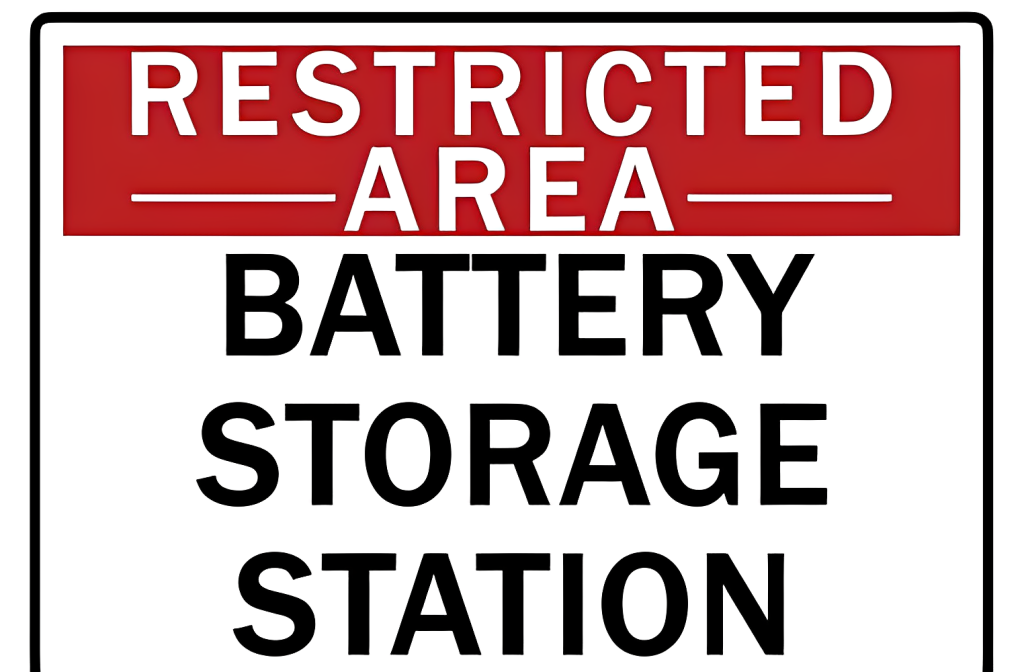To safely store lithium batteries, keep them in a cool, dry place away from direct sunlight and avoid extreme temperatures. Lithium batteries should not be exposed to water or moisture to prevent damage and potential hazards.
Lithium batteries are commonly used in everyday devices such as smartphones, laptops, cameras, and electric vehicles. As the demand for these high-performance batteries continues to grow, it is essential to understand how to store them to maximize their lifespan and ensure safety properly.
Proper storage is crucial because mishandling lithium batteries can lead to overheating, leakage, and even explosions. This article will provide you with essential tips on how to store lithium batteries effectively, ensuring their longevity and minimizing the risks associated with their use.
Whether you are an individual user or a business owner, following these guidelines will help you maximize your lithium batteries while prioritizing safety.
Understanding Lithium Batteries
Storing lithium batteries in a cool, dry place away from direct sunlight and extreme temperatures is crucial to ensure lithium batteries’ longevity. Keeping the batteries at a partial charge, around 40-60%, and in a non-conductive container to prevent accidental short-circuiting is advisable.
Regularly checking the battery’s charge level and avoiding over-discharge is also essential for proper storage.

What Are Lithium Batteries?
One kind of rechargeable battery is the lithium battery, commonly used in various electronic devices. They are known for their long-lasting performance and high energy density, which makes them popular in smartphones, laptops, and electric vehicles.
Unlike traditional batteries that use chemical reactions to generate electricity, lithium batteries use lithium compounds as their primary power source. This enables them to provide more energy and have a longer lifespan than other types of batteries.
Risks Associated With Lithium Batteries
While lithium batteries offer numerous benefits, it’s essential to understand and address the risks associated with their storage. Mishandling or improper storage of these batteries can lead to potential hazards, including:
- Fire Hazard: Because of its high energy density, lithium batteries can release significant energy if damaged or exposed to extreme temperatures. This can result in a fire hazard.
- Chemical Leakage: If a lithium battery is damaged or punctured, it can leak corrosive chemicals that pose a health risk if exposed to the skin or eyes.
- Explosion Potential: When lithium batteries are exposed to extreme temperatures or go through thermal runaway, there is a risk of explosion. This can occur if the battery is overcharged, damaged, or stored in an unsafe environment.
Understanding these risks is vital to ensure the safety of both yourself and your belongings. Following proper storage guidelines can minimize the likelihood of these risks and prevent any potential accidents.

Credit: foxvalleyfire.com
Safe Storage Practices
When it comes to storing lithium batteries, safety should be your top priority. By following the correct storage practices, you can ensure your batteries’ longevity and optimal performance. This article will discuss the key factors to consider while keeping lithium batteries, including deciding where to keep them and considering temperature and humidity.
Choosing The Right Storage Location
When selecting a storage location for your lithium batteries, it is essential to keep a few key factors in mind:
- Avoid Extreme Temperatures: Lithium batteries are sensitive to extreme temperatures, so choosing a location within the recommended temperature range is crucial. Extreme heat or cold can significantly impact the battery’s performance and cause irreparable damage. Aim for a storage area with a temperature range between 20°C and 25°C (68°F and 77°F).
- Ensure Adequate Ventilation: While storing batteries in a dry location is important, it is equally essential to ensure adequate airflow. Appropriate ventilation minimizes the accumulation of potentially hazardous gasses and aids in dissipating any heat produced by the batteries. Don’t store batteries in airtight containers or areas with poor ventilation.
- Minimize Fire Hazards: Because lithium batteries can be a fire hazard if not stored correctly, choosing a location away from flammable materials is essential. Keep your batteries in a dedicated storage area, away from any potential ignition or combustible materials sources.
Temperature And Humidity Considerations
The temperature and humidity of the storage environment can significantly impact the lifespan and overall performance of lithium batteries. Here are a few key considerations:
- Avoid Extreme Humidity: High humidity levels can lead to corrosion and damage the internal components of lithium batteries. Aim to store your batteries in a dry environment with 30% and 50% humidity. Consider using humidity control devices, such as dehumidifiers or desiccant packs, to maintain optimal humidity levels.
- Prevent Quick Temperature Changes: Quick temperature shifts or variations can have a detrimental effect on the chemical reactions happening inside the battery. It is best to store your batteries in an environment with stable temperatures to maintain their performance. Avoid placing them near heat or cold sources, such as radiators or windows.
By adhering to these safe storage practices, you can ensure your lithium batteries’ longevity and proper functioning.
Remember to regularly inspect your storage area for any signs of damage or deterioration, and always follow the manufacturer’s guidelines for storing specific types of lithium batteries.

Protection From Physical Damage
Lithium batteries are prone to damage if not stored properly. Protecting them from physical harm is crucial to ensure their safety and longevity.
Avoiding Impact And Crushing
Avoid dropping or impacting lithium batteries, as this can lead to internal damage and potentially cause leakage or explosion. Store them away from heavy objects that could crush or puncture the battery casing.
Shielding From Exposure To Water And Fire
To prevent damage, protect lithium batteries from exposure to water and fire. Store them in a dry, excellent location away from heat sources, and use insulated containers or packaging to safeguard against potential water damage.
Handling And Transport Guidelines
When storing lithium batteries, it’s crucial to understand the proper handling and transport guidelines to ensure safety and prevent any potential accidents. Whether moving or shipping lithium batteries, following these guidelines will help you keep them secure and minimize the risk of damage or leakage.
Packaging For Transportation
One of the most important aspects of transporting lithium batteries is proper packaging. This ensures the batteries are protected from external factors that could damage them. Here are a few guidelines for packaging lithium batteries during transportation:
- Use only approved packaging materials explicitly designed for lithium batteries.
- Ensure the packaging is sturdy enough to withstand any potential impact or crushing during transit.
- Insulate each battery to shield it from conducting objects or other battery materials.
- Ensure that the packaging provides adequate cushioning to absorb any shocks or vibrations.
- Seal the package securely to prevent any accidental openings.
Guidelines For Handling
Proper handling of lithium batteries is essential to prevent damage or injury. Whether you are storing them or moving them within your facility, here are some guidelines to keep in mind:
- Avoid dropping or mishandling batteries, as this can lead to internal damage.
- Always handle batteries with clean, dry hands to prevent any contamination.
- Do not expose batteries to extreme temperatures, affecting their performance and longevity.
- Store batteries out of direct sunlight in an excellent, dry environment sunlight.
- Avoid stacking batteries on top of each other or placing heavy objects on them.
- Keep batteries away from flammable materials or liquids.
- Ensure that Batteries are kept upright in storage to avoid any leakage.
By following these guidelines for handling and transportation, you can ensure the safety and longevity of your lithium batteries.
Remember, it’s always better to be cautious and proactive when storing and transporting potentially hazardous materials like lithium batteries.
Regulations And Compliance
When storing lithium batteries, it is crucial to understand the legal requirements and comply with transportation regulations. Failure to follow these guidelines can lead to severe consequences, including safety hazards and legal issues. This section will explore the critical aspects of regulations and compliance in storing lithium batteries.
Understanding Legal Requirements
Before delving into the specific transportation regulations, it is essential to understand the legal requirements of lithium battery storage. These requirements are implemented to ensure the safety of both individuals and the environment.
Lithium batteries are considered hazardous materials due to their flammable nature. Therefore, organizations and individuals must comply with the regulations set by regulatory bodies such as the Association for International Air Transport (IATA) and the Department of Transportation (DOT).
Compliance With Transportation Regulations
Complying with transportation regulations is a crucial aspect of storing lithium batteries safely. These regulations are designed to minimize the risk of accidents and ensure the proper handling of hazardous materials during transportation.
One vital regulation to consider is the packaging requirements for lithium batteries. It is essential to use approved packaging materials that provide adequate protection and prevent potential risks. This includes using substantial, sturdy containers to withstand transportation conditions and protect the batteries from damage.
Additionally, labeling and documentation requirements must be adhered to. Proper labeling ensures that those handling the batteries are aware of the potential hazards and can take appropriate precautions. Documentation, such as a transport or shipping paper, must also provide information about the contents and handling instructions.
| Critical points on Compliance with Transportation Regulations: |
|---|
| ✔ Use approved packaging materials |
| ✔ Ensure proper labeling |
| ✔ Follow documentation requirements |
Staying updated with the latest regulations is essential, as they may be subject to changes or amendments. Regularly reviewing and renewing compliance practices is vital to ensure safe storage and transportation of lithium batteries.
By understanding and adhering to the legal requirements and transportation regulations, you can ensure the safe storage of lithium batteries and mitigate potential risks. Compliance is a legal obligation and a responsible action towards safeguarding people and the environment.

Credit: www.enduropowerbatteries.com
Lithium Battery Storage Requirements
Lithium batteries have become famous for various applications, including energy storage. When it comes to storing lithium batteries, there are several key considerations to ensure safety and optimal performance:
- Temperature:
- Lithium batteries should be stored in a cool, dry place. High temperatures can accelerate aging and reduce the battery’s lifespan.
- Extreme temperatures, both hot and cold, can affect the performance and safety of lithium batteries. It’s essential to avoid exposing them to temperatures outside their recommended operating range.
- State of Charge (SOC):
- For long-term storage, lithium batteries should ideally be stored at a moderate state of charge, typically around 40-60%. Storing them at full charge or completely discharged states for extended periods can lead to capacity loss and decreased performance.
- Ventilation:
- Adequate ventilation is crucial, especially if you are storing many lithium batteries. In the rare event of a thermal runaway or other safety issues, proper ventilation helps dissipate heat and gases, minimizing potential risks.
- Avoidance of Mechanical Stress:
- Lithium batteries can be sensitive to physical stress. Avoid dropping, puncturing, or subjecting them to mechanical impact, as it can damage the internal components and compromise safety.
- Isolation and Separation:
- When storing lithium batteries, especially in large quantities, it’s advisable to store them in a way that prevents physical contact and potential short circuits. This is important for safety reasons to prevent unintentional discharge or overheating.
- Protection from Moisture:
- Lithium batteries should be kept in a dry environment. Moisture can lead to corrosion of the battery terminals and degrade performance. It’s essential to store them in a location where they won’t be exposed to humidity.
- Fire Suppression Measures:
- While the risk is minimal, especially with modern lithium batteries, having fire suppression measures in place is a good practice. This can include fire-resistant storage containers or proximity to fire extinguishing equipment.
- Regular Inspection:
- Periodically inspect stored lithium batteries for any signs of damage, swelling, or leakage. If any issues are detected, take appropriate measures, such as isolating or properly disposing of the damaged batteries.
Remember that specific recommendations may vary depending on the type and purpose of the lithium batteries. Always refer to the manufacturer’s guidelines for the particular battery type you are working with.
Frequently Asked Questions On How to Safely Store Lithium Batteries
How Should I Store Lithium Batteries When Not In Use?
It is essential to store lithium batteries in a cool and dry place when not in use. Avoid extreme temperatures and keep them away from direct sunlight. It is also recommended to store them at a partial charge, ideally around 40% to 50%.
This helps to prolong their lifespan and maintain optimal performance.
Can Lithium Batteries Be Stored For A Long Time?
Yes, lithium batteries can be stored for a long time. However, it is essential to store them properly to maintain their performance and prevent damage. Please keep them cool and dry, away from extreme temperatures and direct sunlight.
It is also recommended to store them at a partial charge to prolong their lifespan.
Is It Safe To Store Lithium Batteries In A Refrigerator?
Storing lithium batteries in a refrigerator is not recommended. While it may seem calm and dry, condensation can occur when the batteries are taken out and exposed to warmer air, potentially damaging them. It is best to store lithium batteries in a cool and dry place at room temperature.
Can Lithium Batteries Be Stored Together With Other Items?
Lithium batteries should not be stored with other items, especially metal objects. This is because the batteries can short-circuit if the positive and negative terminals come into contact with metal, potentially causing a fire hazard. It is best to store lithium batteries in their original packaging or in a dedicated container to prevent any unintentional contact.
Conclusion
In closing, properly storing lithium batteries is crucial for safety and longevity. By following the recommended guidelines for temperature, charging level, and protection from physical damage, you can ensure that your lithium batteries remain in optimal condition. Remember to store them in a cool, dry place and avoid exposure to extreme temperatures.
Taking these precautions will help you maximize the performance and lifespan of your lithium batteries.

I am a technology Specialized . I have experience in Technology, and all types of electronic devices like Battery . So I work on solving these issues and give various tips on these issues
